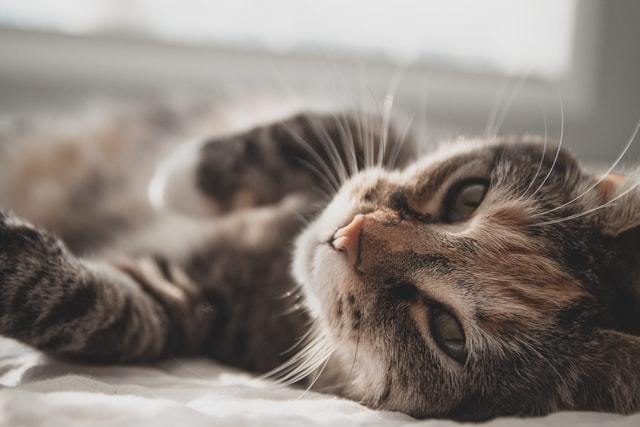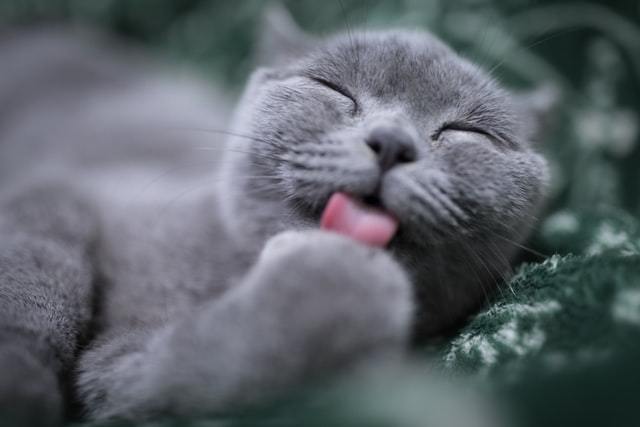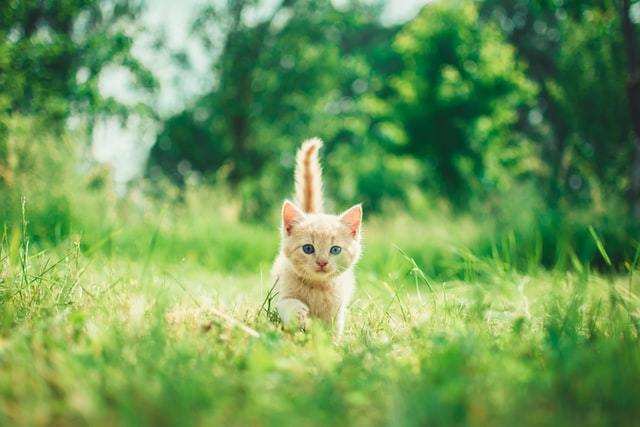Glucosamine and Chondroitin at a glance
Joint supplements are widely available and inexpensive. Many cats will benefit from them as they can prevent joint disease and minimise joint inflammation.
- Though medical studies are lacking, most vets and scientists agree that joint supplements are important. Their role in the long-term management of feline joint disease is established.
- Glucosamine and Chondroitin can keep cartilage healthy and prevent joint stiffness in cats.
- Side effects from nutraceuticals are rarely reported and they are generally very well tolerated.
If your cat struggles with their mobility, it is only natural you will want to try and help them. You’ve likely heard of joint supplements and are wondering if they are worth the hype. With so much conflicting advice, it can be hard to know who to trust. Read on to get a veterinary expert’s opinion on joint supplements containing glucosamine and chondroitin for cats.
Impact on Joint Health
Nutraceuticals such as Glucosamine and Chondroitin Sulphate are commonplace in the veterinary world. They are recommended by vets as both joint disease preventatives and as part of the treatment plan for a range of orthopaedic disorders.
Frustratingly, there is relatively little solid research on the use of joint supplements in the feline world. Despite this, many studies (such as this one or this one) have proven their efficacy in both humans and other animals.
While robust studies are lacking, many vets and owners will agree they have witnessed the promising effects of glucosamine and chondroitin for cats. These natural ingredients can reduce inflammation within the joints. They can also prevent cartilage breakdown and may even restore lost cartilage. Cartilage is the shock absorber of the joint and allows for fluid and pain free movement. When cartilage is running low, your cat’s joints will become stiff and sore.
How is Glucosamine/Chondroitin Given?
There are a variety of ways that owners can administer joint supplements to their cat. How the supplements are given will depend on your and your cat’s preference. Tablets, capsules, powder and liquid are all widely available.
This author has a personal preference for liquids and powders over tablets and capsules. Most cats tend to take them better as they can be put on their meals. As cats don’t realise they are receiving their supplements they are much less likely to refuse them!
Dosage and Side Effects
Frustratingly, there are no published optimal dosing levels and you will find that available products come in a range of strengths. Vets and suppliers have used ‘anecdotal evidence’ to establish safe and effective doses.
For a cat, anywhere from 100 to 500mg of Glucosamine is advised a day. It is well accepted that these supplements work best when given together and each enhances the effect of the other.
Joint supplements very rarely cause any side effects in our feline patients. They are well tolerated by the vast majority. There are no documented studies on the potential side effects. However, many patients are on these nutraceuticals long term with no ill effect. Even when mistakenly eaten by unsupervised cats in very large amounts, it is rare for a cat to become unwell.
For a small number of cats, they can develop a mild gastroenteritis after starting Glucosamine and Chondroitin. This should be limited to mild diarrhoea and will resolve shortly. Due to this, it can be sensible to start sensitive patients on a lower dose than advised and to work your way up to the full dose over time.
How long do Glucosamine and Chondroitin take to become effective?
Glucosamine reaches peak concentration after just a few hours. However, it takes several weeks for joint supplements to come into full effect. It isn’t uncommon for owners to try them for a few weeks and then stop as no discernible effect is seen. These owners may simply not be sticking it out long enough to see the full effect of the supplements.
What medical conditions can I use Glucosamine and Chondroitin for?
Joint supplements can be useful to give to those cats who are at risk of joint disease. This includes those born to a parent with hip dysplasia or who have suffered trauma and had a broken or dislocated bone.
If you think your kitty seems a little stiffer or slower, there is no reason not to start joint supplements. As they may help prevent joint disease and rarely cause ill effect, they are a real no-brainer.
For those with diagnosed joint disease such as osteoarthritis or hip dysplasia, Glucosamine and Chondroitin are also prescribed alongside other medicine. They are typically given with non-steroidal anti-inflammatories and pain relief. This ‘multi-modal approach’ works best for most patients, alongside environmental modifications.
We Recommend This Hip n' Joint Vitalize Support
Scruffy Paws’ joint supplement is world renowned and a favourite of many owners. Not only does it contain a range of joint supportive ingredients, it is available in a palatable liquid. This makes dosing as easy as pie, as you don’t have to wrestle a pill into your cat’s mouth. In fact, many kitties see this liquid as a treat and look forward to their daily dose.

As well as the Glucosamine and Chondroitin discussed in detail above, active ingredients include MSM and Hyaluronic Acid. These ingredients can slow down the progression of arthritis and reduce joint inflammation.
Final Thoughts
Up to 90% of cats over the age of 12 will suffer from some degree of arthritis. This means that most pet kitties experience some joint pain. Signs can be subtle and many cats suffer in silence. As joint disease can be debilitating, minimizing its effects is a priority of most owners.
Starting a daily joint supplement containing Glucosamine and Chondroitin is one step that every owner can take to protect their cat and their joint health. If your cat does go on to develop arthritis, you can feel confident you are doing the right thing by continuing their supplement.
Dr. Linda Simon, BVMS, MRCVS
Veterinary surgeon,Dr. Linda Simon MVB MRCVS is a locum veterinary surgeon who has worked in London for the past 8 years. She graduated top of her class in small animal medicine from UCD, Dublin. She is currently a member of the Royal College of Veterinary Surgeons.



